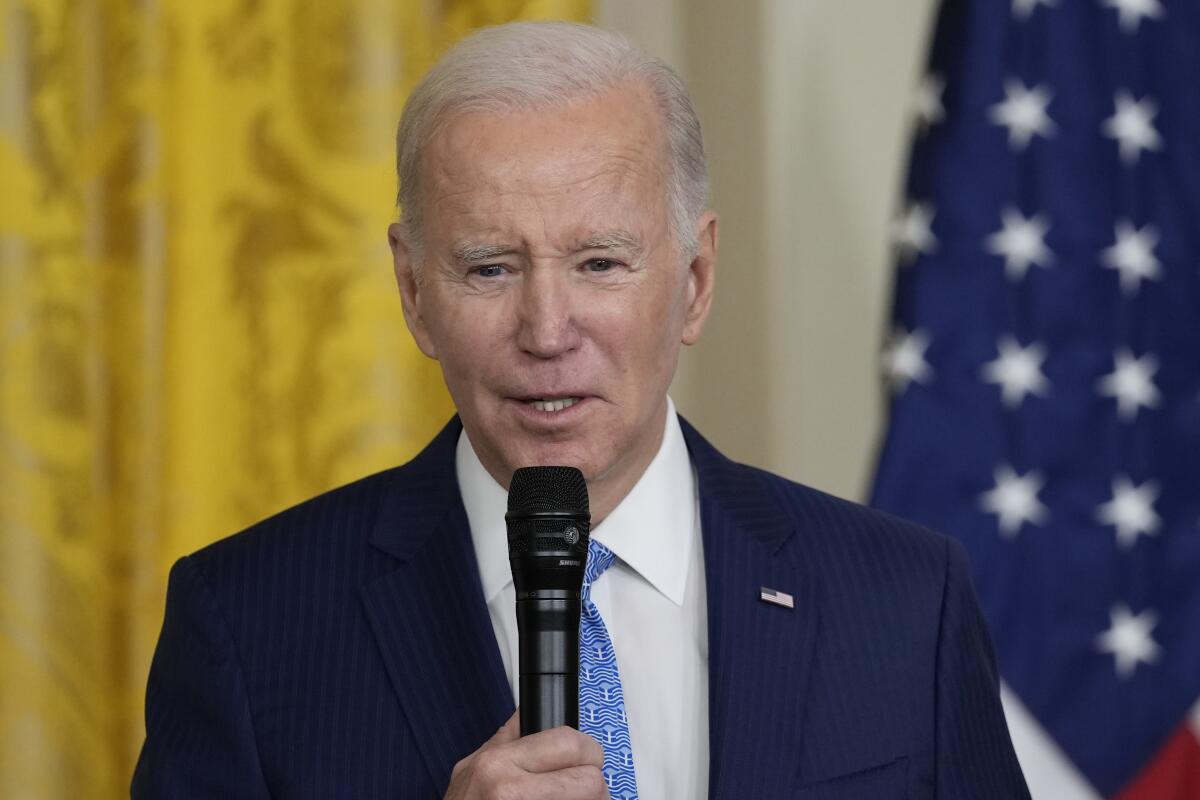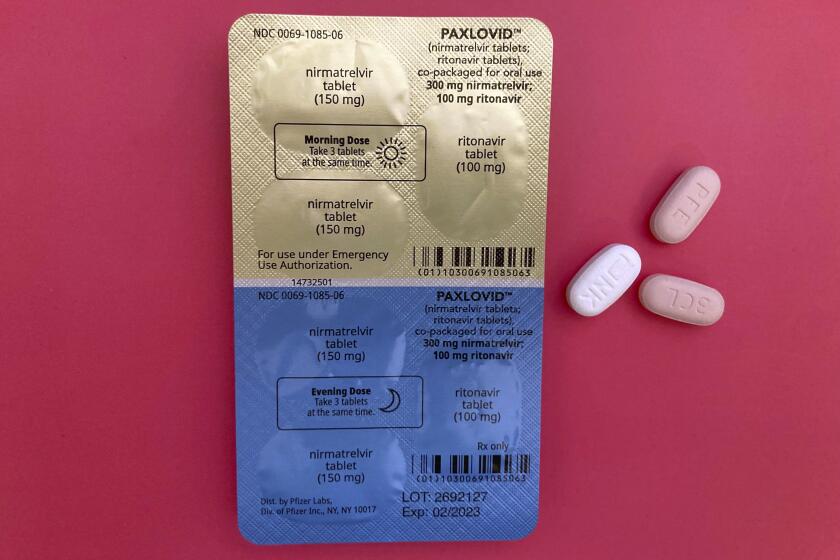Biden won’t veto Republican-led bill ending COVID emergency

- Share via
WASHINGTON — President Biden won’t veto a Republican-led measure to end the national COVID-19 emergency, despite having expressed strong objections against it earlier this year, ensuring the bill is on an easy path to becoming law.
It marks the second time in the new Congress that the Biden administration has signaled opposition to a Republican measure, rallying most Democrats in Congress to vote against it, only to soften its stance and let the legislation eventually become law.
Just weeks ago, Biden stunned many fellow Democrats when he declined to veto a Republican-led bill to upend a new criminal code for the District of Columbia he and others in the president’s party opposed, allowing the GOP’s tough-on-crime push into the local government to become law.
Republicans celebrated the turn of events as a sign of their newfound influence in divided Washington, while Democrats quietly complained that the Biden administration had shifted its views.
But the White House stood firm, and the Senate gave final approval, 68-23, sending the bill to Biden’s desk.
Dropping protections such as free tests and Medicaid continuous coverage will leave many uninsured and undocumented people without access to care for COVID-19.
A White House official said that when the House Republicans were first preparing to vote on the bill at the start of the year, it would have lifted the national emergency declaration for the pandemic in February.
But now, it’s much closer to the White House’s own plan to wind down COVID-19 national emergency status on May 11.
The president still strongly opposes the legislation, said the official, who was granted anonymity to discuss the situation. But if this bill comes to Biden’s desk, he will sign it, the official said.
Ahead of voting, Sen. Roger Marshall (R-Kan.), one of the bill’s main sponsors, said he hoped “that the rumors are true — that the president will finally sign this legislation.”
The legislation is a simple one-line measure saying that national emergency declared on March 13, 2020, “is hereby terminated.”
If the U.S. public health emergency ends, Americans would be vulnerable to a new coronavirus variant that sparks another COVID-19 surge.
It comes from one of the more conservative Republicans in the House, Rep. Paul Gosar of Arizona, and draws on Republican-led opposition to mask mandates, lockdowns and other precautions that were put in place to stem the spread of the virus during the pandemic. It was among the early bills the new House GOP put forward at the start of the year.
At the time, the administration warned the proposal would cause chaos. More than 197 Democrats in the House voted against it.
“An abrupt end to the emergency declarations would create wide-ranging chaos and uncertainty throughout the health care system — for states, for hospitals and doctors’ offices, and, most importantly, for tens of millions of Americans,” the administration said in a formal statement of administrative policy.
A pandemic allows the Food and Drug Administration to authorize vaccines and drugs for emergency use, even after the health emergency ends.
In the days leading up to the House vote, the Biden administration announced its own plan to wind down emergency status on May 11, three years after the virus outbreak.
The administration’s announcement meant the federal coronavirus response would be treated more as an endemic threat to public health that could be managed through agencies’ normal authorities, rather than pandemic status.
AP writer Mary Clare Jalonick contributed to this report.
More to Read
Sign up for Essential California
The most important California stories and recommendations in your inbox every morning.
You may occasionally receive promotional content from the Los Angeles Times.













